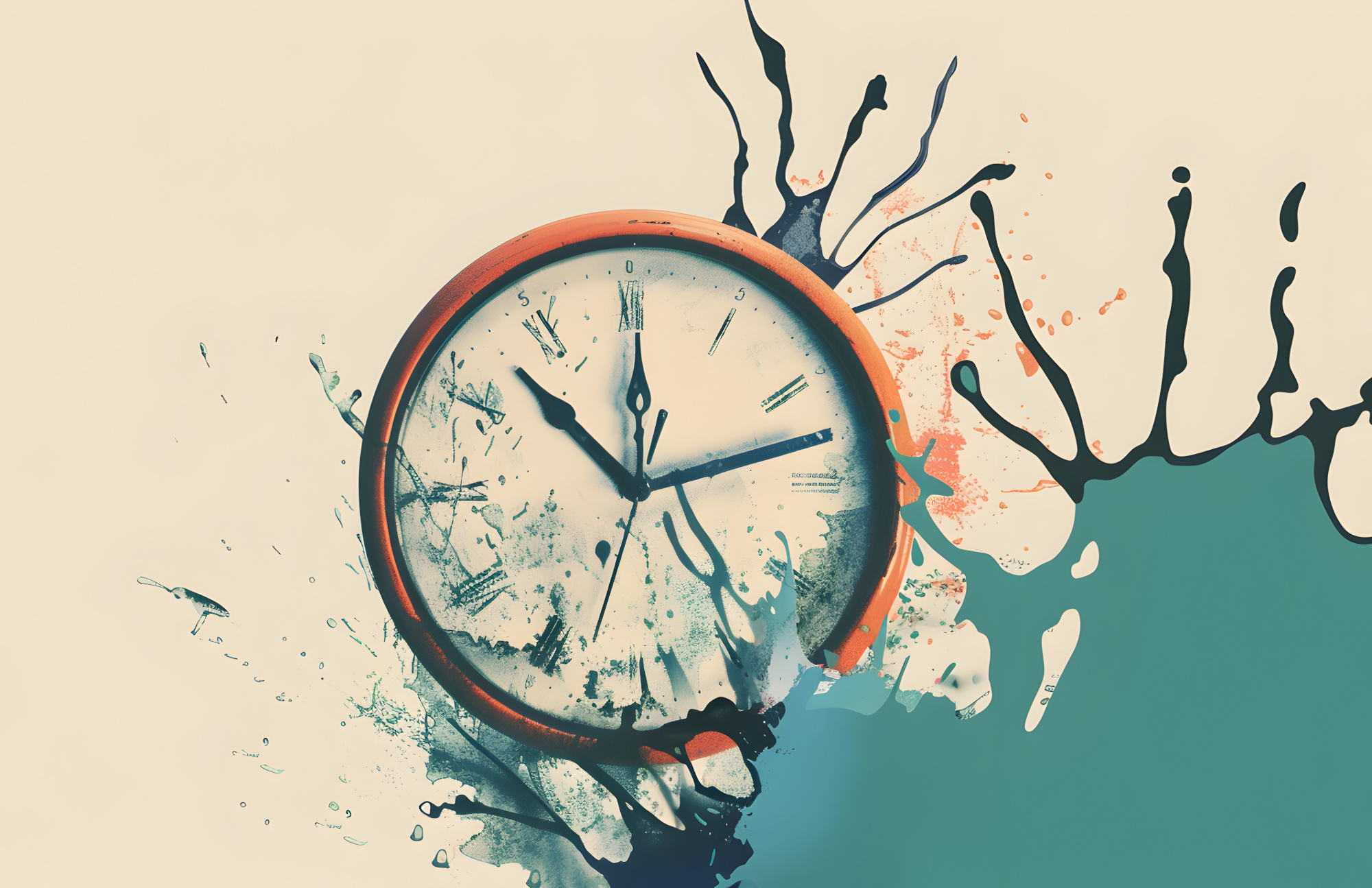Alcoholism, also described as alcohol use disorder (AUD), affects millions of Americans. Many individuals may not even be aware they are struggling with AUD.
The ways alcoholism impacts your life and the lives of others are endless. Because of these potential impacts, you must be aware of your relationship with alcohol. If your need to drink surpasses your ability to function in your everyday life, it may be time to reach out for help. Quitting drinking is possible and there is a current movement that is making sobriety even more common. (Check out this TEDx Talk by author and “Alcohol Free Life” podcaster, Janey Lee Grace.)
Drinking is typical, especially in American culture. The number of people who come home after work and have a drink to cope with daily stress is astronomical.
For example, co-workers may frequent a bar at the end of a work day or week to socialize and forget the stressors of their job. Friends may invite you out for “Thirsty Thursday.” The idea is to blow off steam with your friends. Each of these situations is using alcohol as a form of stress reliever.
There is nothing inherently wrong with blowing off steam with your friends, but you must ask, when is one drink too many? How many times do you exceed your limit? Is the ritual of “blowing off steam” hindering your work performance or ability to perform responsibilities in other areas of your life?
Looking at the Facts
After answering the questions above, you may discover that you are experiencing some level of alcoholism. However, you are not alone. According to the National Institute on Alcohol Abuse and Alcoholism (NIAAA), 14.5 million people, 12 years and older, struggled with AUD in 2019. Alcoholism is much more common than most people realize, but treatment and recovery are more than possible to help overcome this disorder.
Drinking in the United States
Statistics surrounding alcohol use in the United States testify to drinking as a cultural pastime and natural part of social interaction. That is no secret. The NIAAA references a survey conducted by the National Survey on Drug Use and Health (NSDUH) in 2019. According to that survey, 85.6% of people, 18 years and older, reported drinking alcohol during their life.
Work events, holiday parties, football games, and other occasions are all scenarios where drinking is present and often encouraged. It is simply the culture of our time. However, with constant research and education, society is beginning to understand the real dangers of alcohol consumption when it exceeds moderation.
According to a report on CNN, there is no amount of liquor, beer, or wine that is safe. Watch the CNN video here.
Excessive Alcohol Use
There is a strong correlation between excessive alcohol use, binge drinking, and AUD.
According to the Centers for Disease Control and Prevention (CDC), excessive alcohol use includes “drinking five or more drinks on an occasion for men and four or more drinks on an occasion for women.”
Excessive alcohol use typically leads to several other health risks. Short-term health risks, according to the CDC, include:
- Accident-related injuries, such as a motor vehicle accident, taking a severe fall, drownings, and burns
- Violent Incidents such as homicide, suicide, sexual assaults, and intimate partner violence
- Alcohol poisoning, resulting in high blood alcohol levels
- Risk behavior such as unprotected sex or sex with multiple partners – leading to unintended pregnancy or sexually transmitted illnesses
- Severe health-related issues for pregnant women, including miscarriages, stillbirths, or fetal alcohol spectrum disorders (FASDs)
Long-Term Health Risks
Some of the long-term health risks associated with excessive alcohol use include:
- High blood pressure, heart disease, stroke, liver disease, and digestive problems
- Cancer of the breast, mouth, throat, esophagus, voice box, liver, colon, and rectum
- The weakening of the immune system and increased prevalence of getting sick
- Learning and memory problems, such as dementia and poor cognitive performance
- The development of other mental health problems, such as depression, anxiety, or panic disorder
- Social difficulties, including family problems, job-related issues, and unemployment
- Alcohol dependence and AUD
Similarly, heavy alcohol use is also quite common and consists of drinking 15 or more drinks per week for men and eight or more drinks per week for women. Many people struggle to recognize patterns of excessive or heavy drinking in themselves. Failure to recognize these patterns can make it difficult to acknowledge and accept the problem.
Recognizing the signs of alcoholism within yourself and a loved one is crucial.
10 Signs You May Be Struggling With Alcoholism
There are some key indicators to watch out for if you suspect yourself or a loved one has AUD.
#1. Recognize the Behaviors
Have you or a loved one consumed more drinks or continued drinking for a longer time than you had planned to in the past year? Was there a lot of time spent recovering from drinking? Have you experienced hangovers more frequently?
These behaviors can show the potential of alcoholism and are important to recognize. If you or a loved one is struggling with any of these behaviors, it is a clear sign AUD may be present.
#2. Unsuccessful Attempts to Quit
If you have tried to cut down on your drinking or stop altogether but could not, you may be struggling with AUD. At this point, it has become something you need to function, not just something you enjoy doing.
Once the body becomes addicted to alcohol, it reinforces the reward system within your body, increasing your everyday need for it.
#3. Interference With Your Life
Individuals struggling with AUD typically experience interference in work or school performance and have issues in their personal lives. These can include personal relationships with spouses, significant others, or for those with families, the inability to take care of your family.
#4. Loss of Interests
Have you given up or cut back on activities you enjoyed and replaced them with drinking? People with AUD typically drop their hobbies and replace them with drinking.
Loss of interest often brings about other mental health disorders and co-occurring disorders along with alcoholism.
#5. Engagement in Risky Behavior
Have you found yourself in dangerous situations?
Many people engage in risky behavior while under the influence of alcohol. Some examples of risky behavior include drunk driving, having unsafe sex, or experimenting with other substances. Each of these behaviors comes along with its own set of consequences.
#6. The Onset of Co-occurring Disorders
There is a strong correlation between AUD and other mental health disorders. If you are struggling with AUD, you may be drinking to either cope with symptoms of conditions like anxiety or depression or, you may begin experiencing symptoms of disorders as a result of your drinking.
#7. Desire to Drink More
The first time you drink, you feel the effects quicker and with less alcohol consumption. However, if you struggle with alcohol use, chances are you need to drink more to experience the same results. That indicates you have built up a tolerance and may have severe alcohol dependence.
#8. Different Actions While Drinking
Alcohol lowers our inhibitions. For some, that means we become more relaxed when we drink, but for others, they may become overly agitated, angry, or even violent.
It’s a red flag if you or someone else behaves differently than they usually would. Individuals may make riskier decisions, black out frequently, and act in a way that opposes their morals and beliefs.
#9. Withdrawal Symptoms
If you are experiencing withdrawal symptoms from not drinking alcohol, this is another major red flag. According to MedlinePlus, you will typically experience these symptoms within eight hours after your last drink. You can, however, only begin experiencing them days after.
Experiencing any withdrawal symptoms indicates that your body is dependent on alcohol, and you should seek treatment right away, as it is a clear indicator your body is developing alcohol dependence.
#10. Your Surrounding Social Circle
While your social circle on its own does not automatically qualify you to be struggling with alcoholism, the individuals we surround ourselves with often have a large impact on our decisions. If your friend group consistently goes out to drink and contains many individuals struggling with AUD, this can be a concern for you as well.
Treating Alcohol Addiction With Therapy
Despite the many short- and long-term risks associated with excessive drinking and AUD, treatment can help you. There is no one-size-fits-all approach to treating alcohol addiction, but treatment is the perfect time to experiment with different methods in a safely monitored location.
Talk Therapy
Talk therapy, or psychotherapy, is one of the most common forms of treatment used by mental health professionals. It has proven to be effective in treating not only addiction but several mental health disorders.
Talk therapy helps treat addiction through a variety of evidence-based treatments. Some of these practices include:
- Cognitive-behavioral therapy (CBT): This therapy is focused on how thoughts and emotions influence behaviors. Additionally, it examines how negative thoughts trigger emotions and create distorted thought patterns, which negatively influence harmful behaviors.
- Dialectical behavior therapy (DBT): This is a practice that helps clients to achieve emotional regulation. DBT recognizes that many emotional disturbances occur because people experience emotions intensely, allowing those emotions to take over. This therapeutic form can help you cope with emotions more healthily.
- Psychodynamic therapy: This therapy considers age, life stages, and the family system. It looks at what stage a client is at in their lives, their chronological age of development, and what role their family currently plays in their life. Psychodynamic therapy focuses on how different dynamics may have interrupted the development of a client.
- Group therapy: This form of therapy is another beneficial tool in treating alcohol addiction. During group therapy, clients have the chance to connect through their shared struggles. These connections help you keep each other accountable and widens your support network.
- Trauma work: This practice is another critical tool, as trauma can directly impact the development of addiction. Addiction is typically a coping mechanism to deal with past trauma, and trauma-focused therapy allows clients to safely process and overcome that trauma.
Alternative Treatment Methods
In addition to commonly practiced evidence-based treatments, many alternative treatment methods can effectively treat alcohol addiction.
Holistic Therapy
Holistic therapy is a personalized, non-medical, whole-person approach to addiction treatment. Through this treatment, individuals address past trauma, find peace within themselves, and learn skills beyond the clinical scope to help them cope with their addiction.
Some of the holistic practices that can effectively be implemented into addiction treatment include:
- Yoga
- Meditation
- Mindfulness
- Art therapy
- Ecopsychology
Adventure Therapy
Another alternative treatment method that can effectively treat alcohol addiction is adventure therapy. Adventure therapy is a form of psychotherapy that combines nature, community, and exercise.
Some of the benefits of adventure therapy include:
- An increased ability to cope with stress
- Improve self-confidence
- Development of self-trust
If you have recognized any of the 10 signs of alcoholism mentioned here in yourself or a loved one, reach out to a medical professional or treatment facility. The ability to see the signs of AUD could save a life.







